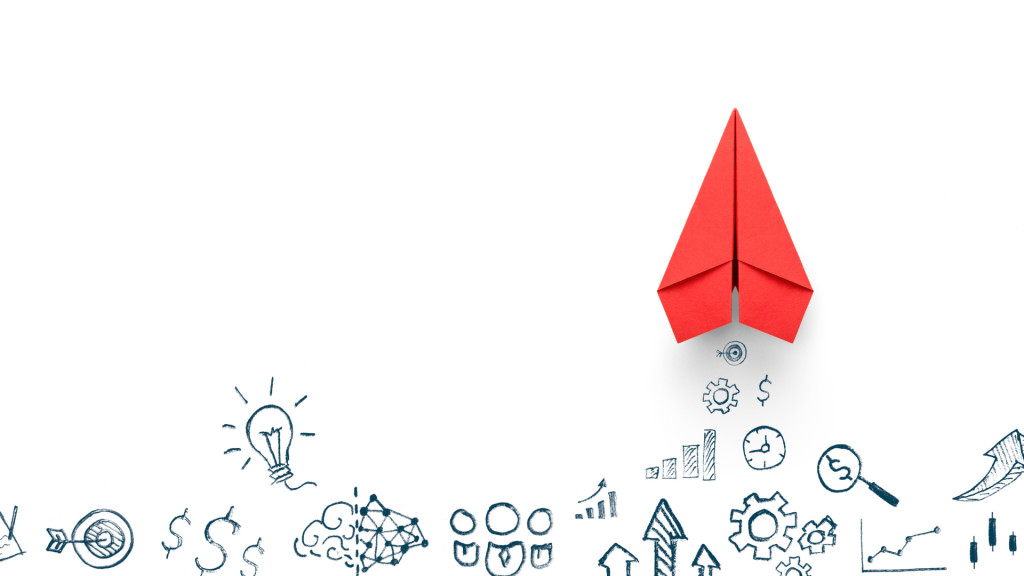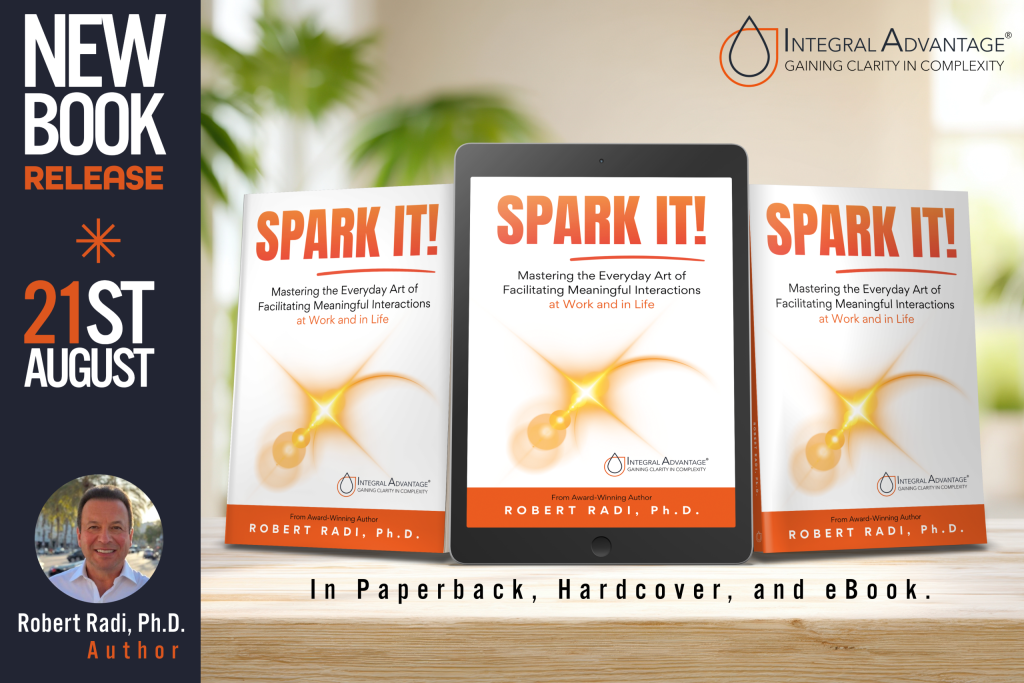Hello world!
Welcome to WordPress. This is your first post. Edit or delete it, then start writing!
RM Magazine: The Science Behind SPARK IT!: Dr Robert Radi On How Psychological Safety and Purposeful Questions Transform Dialogue

Poorly run meetings cost far more than money. Dr Robert Radi shares research-led tools for leaders to build psychological safety, speed decisions and lift ROI. Research consistently shows that poorly run meetings drain productivity and morale across American workplaces. While recent studies indicate significant financial losses from ineffective workplace communication, the real cost extends beyond […]
What’s in Your Playbook? Designing Personal Strategies for Your Life, Your Timing, and Your Circumstances

When we strip strategy of all jargon and platitudes, we can appreciate its role in our personal lives and the opportunities it provides for designing effective strategies tailored to our individual needs, timing, and circumstances.
SPARK IT! The Seven Small Moves That Make Difficult Conversations Easier At Work And At Home

We are grateful to Rich Woman Magazine for featuring our new book, SPARK IT!, which offers seven practical elements that work equally well at the kitchen table and in the conference room. From setting psychological safety to translating insight into action, these small moves can transform how we handle difficult conversations at work and at […]
The Story of Love and Something Else

In writing this article, I am not trying to define love or serve as a guide to finding it. Instead, it is written as an invitation for us to recognize that love is already an integral part of our daily lives. Love intertwines with grief, hope, betrayal, and forgiveness; it flows through these experiences, shaping how we navigate loss, savor joy, and perceive the ordinary.
New Book SPARK IT! Guides Everyday Communicators Master Meaningful Interactions

READ PRESS RELEASE AT ASSOCIATED PRESS https://apnews.com/press-release/ein-presswire-newsmatics/new-book-spark-it-guides-everyday-communicators-master-meaningful-interactions-7e9f55f73c5562c7ce52baeb74ca7683
SPARK IT! The Everyday Art of Facilitation at Work and in Life

Whether you’re guiding a project team, navigating a disagreement, mentoring a colleague, or talking through a family decision at the dinner table, you are facilitating. Or more precisely, you have the opportunity to facilitate. And how you show up in those moments—what you notice, what you ask, what you hold back—can determine whether the conversation yields confusion or clarity, disconnection or insight, impasse or momentum.
The Inception Mindset: A Leadership Imperative for Navigating Perpetual Complexity

We often hear that we’re living in unprecedented times. But if we take a long view of human progress, complexity is not unprecedented—it’s perpetual. What has changed is the density, velocity, and interconnectedness of the variables we must now process. In this context, traditional leadership models—designed around predictability, control, or even basic adaptability—are increasingly insufficient.
The Kintsugi Way of Embracing the Journey of Healing

Philosophically, Kintsugi is rooted in wabi-sabi, the Japanese worldview that finds beauty in imperfection, impermanence, and the passage of time. It reflects the idea that scars and flaws can be meaningful and valuable, not things to be hidden. This philosophy is a profound metaphor for how we approach adversity in our lives.
Intentional Optimism: Finding Purpose in Every Setback

Maintaining optimism can seem like a naïve luxury in today’s increasingly volatile world. Yet, precisely in these moments of uncertainty, intentional optimism—grounded in self-awareness, emotional honesty, and strategic action—emerges as a vital leadership asset. As futurist and science writer Matt Ridley notes, optimism is not about ignoring reality; it’s about facing it with the belief that improvement is possible and worth pursuing. So, optimism is rational.
Too often, optimism is mistaken for a personality trait—something you’re either born with or not. But in my experience, it’s far more dynamic. It is shaped by temperament, yes, but also by adversity, reflection, and intention. It’s not a default setting; it’s a skillset that leaders, educators, and professionals must consciously cultivate.